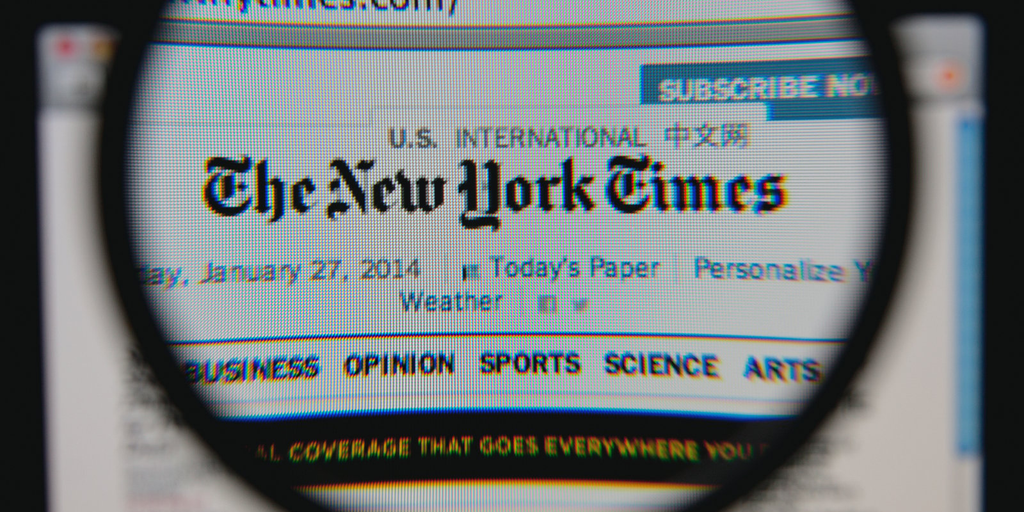[ad_1]

In response to a lawsuit filed by the New York Occasions, by which the information outlet accused OpenAI of utilizing its information content material to coach its AI mannequin, OpenAI has introduced receipts. The main AI developer leaned into its oft-declared dedication to the information business, declaring, “We assist journalism, companion with information organizations, and imagine The New York Occasions lawsuit is with out benefit.”
OpenAI additionally accused the New York Occasions of incomplete reporting, alleging that “the New York Occasions is just not telling the total story.” The corporate means that the examples utilized by the newspaper got here from older articles which are extensively out there on third-party web sites, and likewise hinted that the New York Time had crafted its AI prompts to generate essentially the most damning proof.
“It appears they deliberately manipulated prompts, usually together with prolonged excerpts of articles, to be able to get our mannequin to regurgitate,” OpenAI mentioned, implying that the New York Occasions acted in unhealthy religion by offering unnatural prompts as proof.
“Even when utilizing such prompts, our fashions don’t usually behave the way in which the New York Occasions insinuates, which suggests they both instructed the mannequin to regurgitate or cherry-picked their examples from many makes an attempt.”
Immediate manipulation is a standard apply by which individuals can trick an AI mannequin into doing issues it’s not programmed to do, utilizing particular prompts that set off a really particular response that will not be obtained beneath regular situations.
OpenAI emphasised its collaboration with the information business.
“We work exhausting in our expertise design course of to assist information organizations,” the corporate wrote, highlighting the deployment of AI instruments that help reporters and editors and the objective of mutual progress for each AI and journalism. OpenAI not too long ago fashioned a partnership with Axel Springer—writer of Rolling Stone—to offer extra correct information summaries.
Addressing the difficulty of content material “regurgitation,” because the New York Occasions alleged, OpenAI admits that it’s an unusual however present subject that they’re working to mitigate.
“Memorization is a uncommon failure of the educational course of that we’re frequently making progress on,” they clarify, and defended their coaching strategies. “Coaching AI fashions utilizing publicly out there web supplies is honest use.”
Even so, OpenAI acknowledged the validity of moral issues by offering an opt-out course of for publishers.
AI coaching and content material storage
The battle between content material creators and AI firms appears to be a zero sum sport for now, as the basis of all of it is the basic manner that AI fashions are educated.
These fashions are developed utilizing huge datasets comprising texts from varied sources, together with books, web sites, and articles. Different fashions use work, illustrations, motion pictures, voices, and songs, relying on what they’re educated to create. These fashions don’t retain particular articles or knowledge, nevertheless. As an alternative, they analyze these supplies to be taught language patterns and buildings.
This course of is essential to understanding the character of the allegations and OpenAI’s protection, and why AI trainers imagine their companies are utilizing content material in a good method—just like how an artwork scholar research one other artist or artwork model to know its traits.
Nevertheless, creators—together with the New York Occasions and best-selling authors—argue that firms like OpenAI are utilizing their content material in unhealthy religion. They assert that their mental property is being exploited with out permission or compensation, resulting in AI-generated merchandise that would probably compete with and divert audiences from their authentic content material.
The New York Occasions sued OpenAI saying that using their content material with out express permission undercuts the worth of authentic journalism, emphasizing the potential damaging influence on the manufacturing of unbiased journalism and its price to society. And, it may very well be argued, regardless of how elaborated the immediate is, if it “regurgitated” any form of copyrighted content material, it’s as a result of it was used.
Whether or not it was used pretty or unfairly is as much as the courts to determine.
This authorized battle is a part of a authorized motion that would form the way forward for AI, copyright legal guidelines, and journalism. Because the case unfolds, it’s going to undoubtedly affect the dialog surrounding the mixing of AI in content material creation and the rights of mental property house owners within the digital period.
Nonetheless, OpenAI doesn’t imagine this can be a zero-sum state of affairs. Regardless of criticizing the lawsuit’s key factors, Altman’s firm mentioned it is able to prolong an olive department and discover a optimistic final result someplace.
“We’re longing for a constructive partnership with the New York Occasions and respect its lengthy historical past, which incorporates reporting the primary working neural community over 60 years in the past and championing First Modification freedoms.”
Edited by Ryan Ozawa.
Keep on prime of crypto information, get each day updates in your inbox.
[ad_2]
Source link



